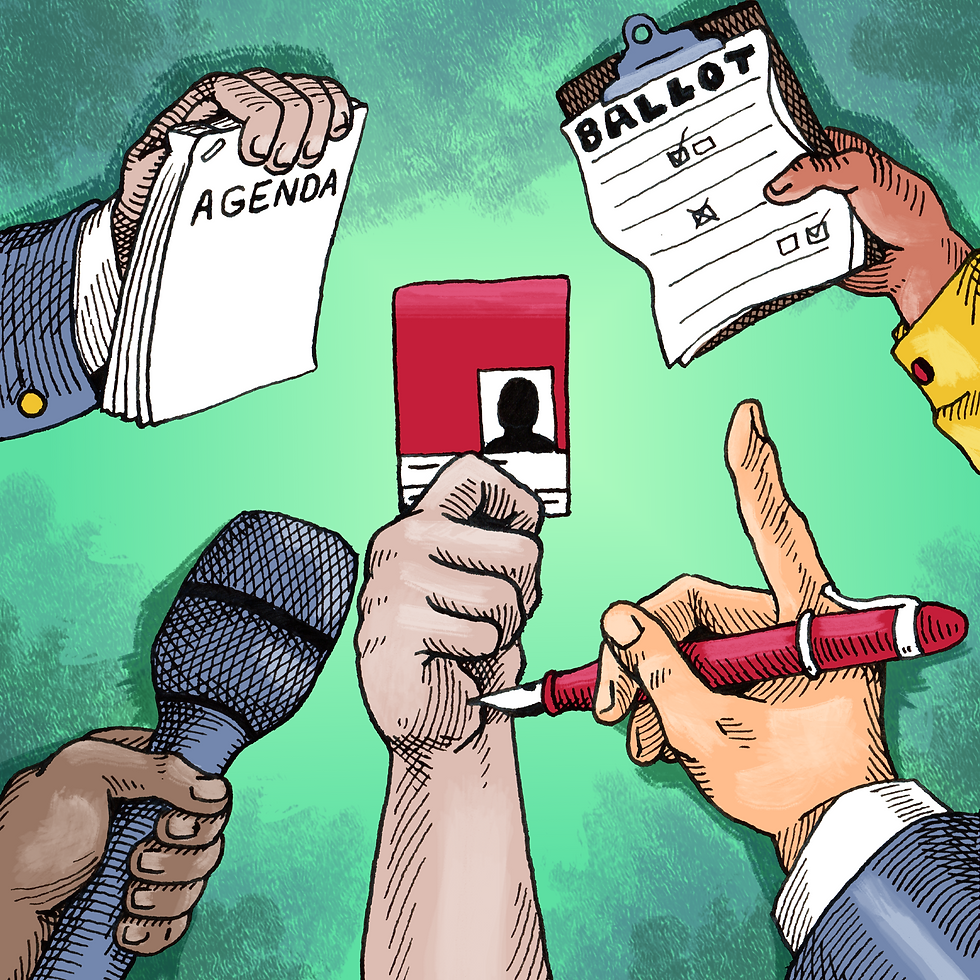Opinion: The TikTok ban is bad, but not for the reason you think
- Collegian staff
- Apr 22, 2024
- 3 min read

The popular social media app TikTok has been controversial for quite some time, but recently this contention has come to a head. The House of Representatives has officially passed a proposal for TikTok to either be bought from the Chinese government or banned in the United States. If approved in the Senate, the bill will only need the president’s signature. A lot is up to the legislators, so as of right now, there is very little the American public can do about the situation. For many this seems inconsequential —it's just another social media platform that students would be more productive without. But the question of a ban is much larger than just one addictive app.
Surprisingly, TikTok seems to be dropping in popularity according to some students. Few have the app downloaded and less than half use it on a daily basis. Instead, they watch reuploaded videos on Instagram and YouTube. While Instagram reels and YouTube shorts attempt to replicate the platform’s success, Tiktok struggles to escape its viral niche. For once being arguably the most popular short-form content, TikTok is dying out as fast as its predecessors of the 2010s. Musical.ly and Vine were both platforms with similar setups. They were beloved by their generation and yet neither lasted more than four years. Vine was launched in 2012 and discontinued in 2016. Musical.ly was released in 2014 before merging in 2017 with none other than TikTok. Perhaps this is fate; the shorter the media, the shorter it lasts. Trends come and go, and when a trend is as much of a threat to national security as the government implies about TikTok, the sooner the better.
U.S. Representative Mike Gallagher (R-WI), who currently chairs the House Select Committee on China, sponsored the bill with these concerns in mind. According to him, TikTok has already begun to abuse user privacy in order to target journalists and interfere in elections. If the United States does not take action, there’s no telling what amount of unclassified information the app could share with rival countries, he asserts.
However, public and federal privacy concerns don’t require banning the platform completely. If regulated safely, the American public would still be able to enjoy TikTok. “The TikTok user experience can continue … so long as ByteDance [China] doesn't own the company,” Gallagher clarified to NPR’s congressional correspondent Deirdre Walsh. Even U.S. Representative and former Speaker of the House Nancy Pelosi (D-CA) commented on this in her House floor speech in March, insisting that improvement was the bill makers’ only motive. Is this true though? Not likely. At the insistence of the Chinese government, TikTok’s parent company has agreed to work alongside Oracle, an American software service, to oversee user data management. But privacy doesn’t appear to be the U.S. government’s only concern. All these apps have another thing in common that must be taken into account, and that’s their intended demographic.
Musical.ly shared the same privacy allegations, as it was also owned by China. That isn’t the case for Vine or even Facebook, the latter of which wasn’t just accused but actually did sell information back in 2017. Both were American-owned, but the dangerous one, Facebook, somehow endured. The truth is that Vine, Musical.ly, and TikTok are Generation Z’s platforms. While every other generation is allowed to keep their favorite flavor of social media, the youngest are forced to start over multiple times. Maybe that has something to do with Zuckerberg and his chokehold on the economy — too Meta? — but more likely it's because the government wants to silence one group in particular. Everyone knows Gen Z is too unpredictable. Too opinionated. Too extreme. The government has not been timid in its views. Officials are afraid of radical ideas voiced by this generation and they know TikTok is where we rally.
This is why the bill is a big deal. Either way, extreme regulation goes against freedom of speech, but America buying TikTok might even be worse than banning it altogether. “I get my news from TikTok. If the government owned it, they could regulate what we see,” Samantha Fernandez ('27) noted. She’s right. The United States government may not buy the app outright, but whichever American company does will be subject to demands. Sure, they may only want to limit screen time right now, but there will always be the possibility of worse. First no more scrolling after midnight, then just the slightest hint at rebellion will get a video blocked. Kylie Smith (‘26) said it best: “Censorship can be bad. … If they’re just going to change the platform, there’s really no point in keeping it.”
Maybe TikTok getting banned won’t have much of an effect by itself. It is, however, indicative of future restrictions. Freedoms that, if not preserved, can be lost forever. Sorry Nancy Pelosi, this proposal will not make the platform “tic-tac-toe, a winner,” but maybe it doesn’t have to be a lost cause either.




Comments